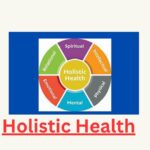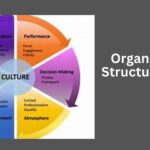In this article ;
• The Foundations of Personal Development
• Specific areas of personal development
• Leadership and Influence
8 Areas Of Personal Development You Don’t Know Exists
Personal development is a continuous process of growth and self-discovery. It’s about improving both personally and professionally to be the best version of yourself.
The Foundations of Personal Development
Before diving into specific strategies, let’s establish the foundational principles of personal development:
Self-Awareness: Self-awareness is the cornerstone of personal development. It involves gaining a deep understanding of your strengths, weaknesses, values, beliefs, and motivations. It’s about recognizing who you are and what drives you.
Goal Setting: Setting objectives gives life direction and purpose and should be done with clarity. Goals act as roadmaps that guide your personal development journey.
Continuous Learning: Embracing a growth mindset and a commitment to lifelong learning is essential. Whether it’s acquiring new skills, knowledge, or perspectives, continuous learning fuels personal growth.
Resilience: Building resilience is crucial for overcoming challenges and setbacks. Resilient individuals bounce back from adversity, learning valuable lessons along the way.
Self-Discipline: Personal development often requires consistent effort and dedication. Self-discipline helps you stay focused and committed to your goals, even when motivation wanes.
Now, let’s explore specific areas of personal development in greater detail.
1. Emotional Intelligence (EQ)
Emotional intelligence, or EQ, refers to the ability to recognize, understand, manage, and effectively use your emotions and those of others. Developing EQ can improve your relationships, decision-making, and overall well-being. The following suggestions can help you develop your emotional quotient;
Self-Awareness: Practice mindfulness and self-reflection to better understand your emotions and triggers.
Empathy: Actively listen and try to understand others’ perspectives and emotions.
Emotion Regulation: Learn techniques like deep breathing, meditation, or journaling to manage emotional reactions.
2. Communication Skills
Effective communication is essential for success on all levels, both personally and professionally. Developing your communication skills can help you express yourself clearly, build stronger relationships, and navigate conflicts more constructively. Key elements of effective communication include:
Active Listening: Give your full attention when someone is speaking, ask clarifying questions, and show empathy.
Assertiveness: Be honest and polite while expressing your needs and feelings.
Nonverbal Communication: Pay attention to body language, tone of voice, and facial expressions to convey your message effectively.
3. Time Management and Productivity
Managing your time efficiently is a crucial aspect of personal development. It allows you to make the most of your day, reduce stress, and achieve your goals. Effective time management involves:
Prioritization: Establishing priorities entails starting with the tasks that are most essential to you.
Setting Boundaries: Learn to say “no” when necessary to avoid over commitment.
Time-Blocking: Set aside distinct time slots for meetings, concentrated work, and breaks.
Goal-Oriented Planning: Use tools like to-do lists and calendars to plan your tasks and projects.
4. Leadership and Influence
Even if you’re not in a formal leadership role, leadership skills are valuable for personal development. Effective leadership involves inspiring and motivating others, fostering teamwork, and making ethical decisions. To enhance your leadership abilities:
Lead by Example: Be the traits and actions you want to see in others
Communication: Develop your communication and active listening skills to connect with and influence others positively.
Empowerment: Encourage and support others in reaching their potential.
Continuous Learning: Stay up-to-date with leadership trends 45. Resilience and Stress Management
5. Resilience
Resilience is the ability to bounce back from adversity, setbacks, and stress. Developing resilience can help you navigate life’s challenges with grace and maintain your mental and emotional well-being. Strategies for building resilience include:
Positive Self-Talk: Cultivate a growth mindset and replace negative self-talk with more constructive and optimistic thoughts.
Self-Care: Prioritize self-care activities like exercise, meditation, adequate sleep, and spending time with loved ones.
Problem-Solving Skills: Develop effective problem-solving strategies to address and overcome challenges.
6. Financial Literacy and Wealth Building
Financial well-being is a crucial aspect of personal development. Understanding personal finance, budgeting, saving, investing, and debt management can empower you to make informed financial decisions and achieve your long-term goals. Key financial principles to consider include:
Budgeting: Create a budget to track your income and expenses and allocate funds for savings and investments.
Investing: Learn about different investment options and strategies to grow your wealth over time.
Debt Management: Develop a plan to pay off high-interest debts and avoid accumulating unnecessary debt.
Financial Goals: Financial Objectives: Establish specific financial objectives and develop a plan to reach them.
7. Health and Well-Being
Your physical and mental health significantly impact your personal development journey. Prioritizing your well-being includes:
Healthy Lifestyle: Maintain a healthy lifestyle by eating a balanced diet, engaging in regular exercise, and getting enough sleep.
Mental Health: Practice stress-reduction techniques, seek professional help when needed, and prioritize self-care.
Mindfulness and Meditation: Incorporate mindfulness and meditation practices into your daily routine to reduce stress and enhance focus.
Social Connections: Build and maintain meaningful relationships to support your mental and emotional health.
8. Networking and Relationship Building
For both personal and professional progress, strong relationships are crucial. Building a robust network and nurturing existing connections can open up opportunities, provide support, and enrich your life. Strategies for effective networking and relationship building include:
Networking Events: Attend industry-specific events, conferences, and meetups to connect with like-minded individuals.
Online Networking: Utilize social media and professional networking platforms to expand your online presence and connect with professionals in your field.
Follow-Up: After making new connections, follow up with personalized messages or meetings to maintain and strengthen relationships.
Personal development is a lifelong journey that empowers you to grow, learn, and become the best version of yourself. By focusing on areas such as emotional intelligence, communication skills, time management, leadership, resilience, financial literacy, health and well-being, and networking, you can unlock your full potential and lead a more fulfilling and purposeful life.
Remember that personal development is a process, and continuous effort and self-reflection will lead to lasting growth and transformation.
Embrace the journey, celebrate your successes, and persevere through challenges as you embark on the path to self-improvement and personal fulfillment.






